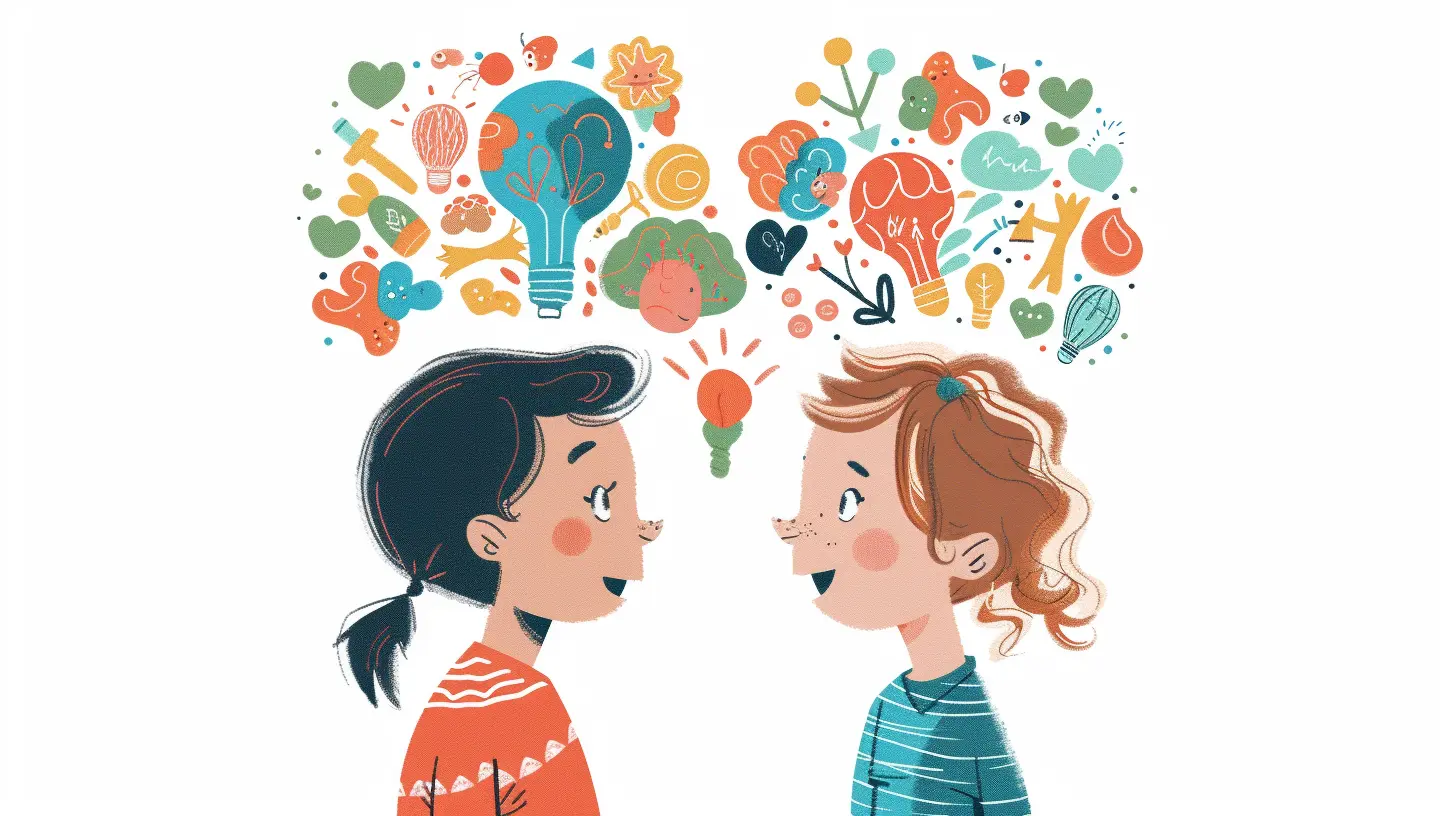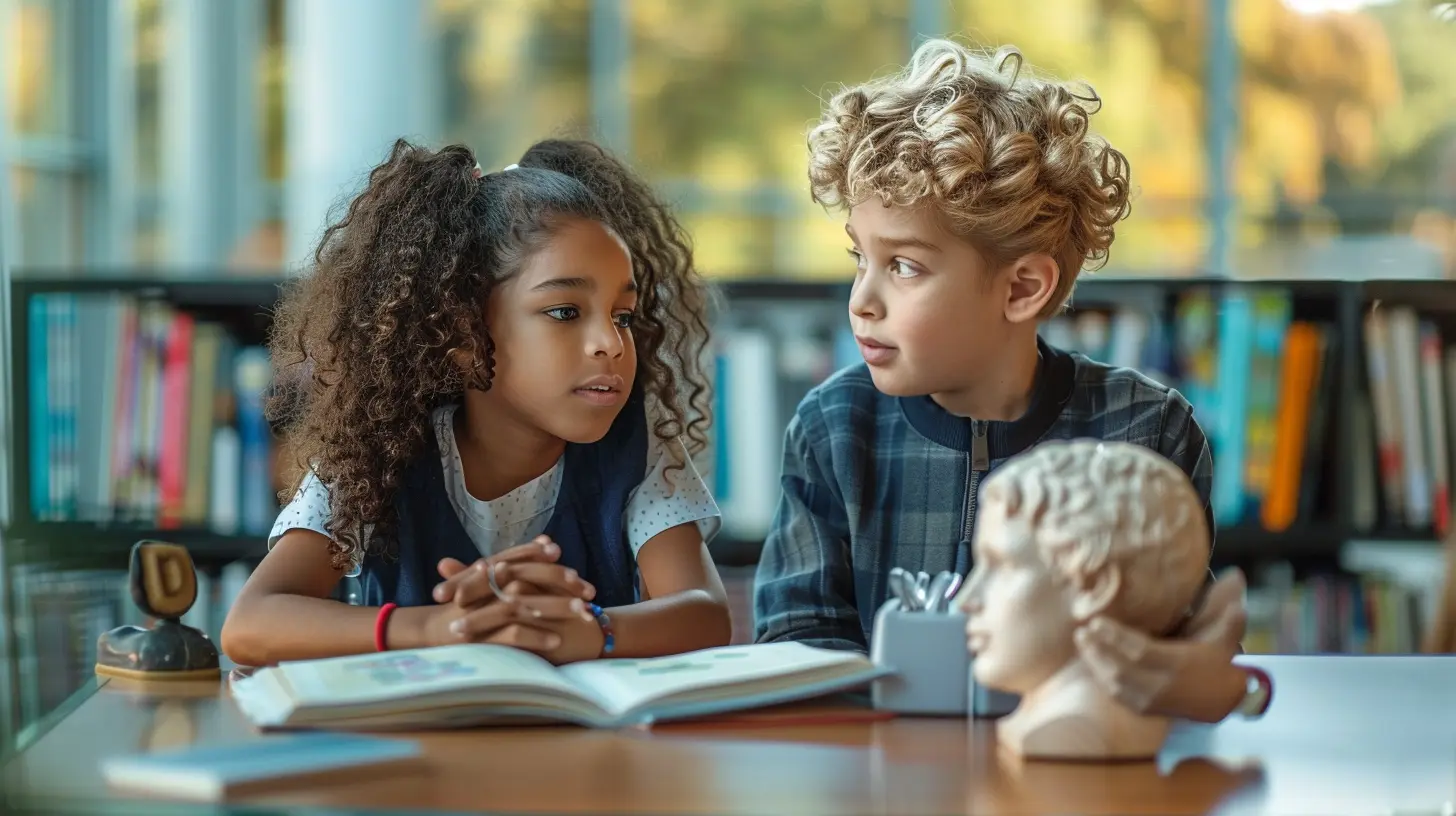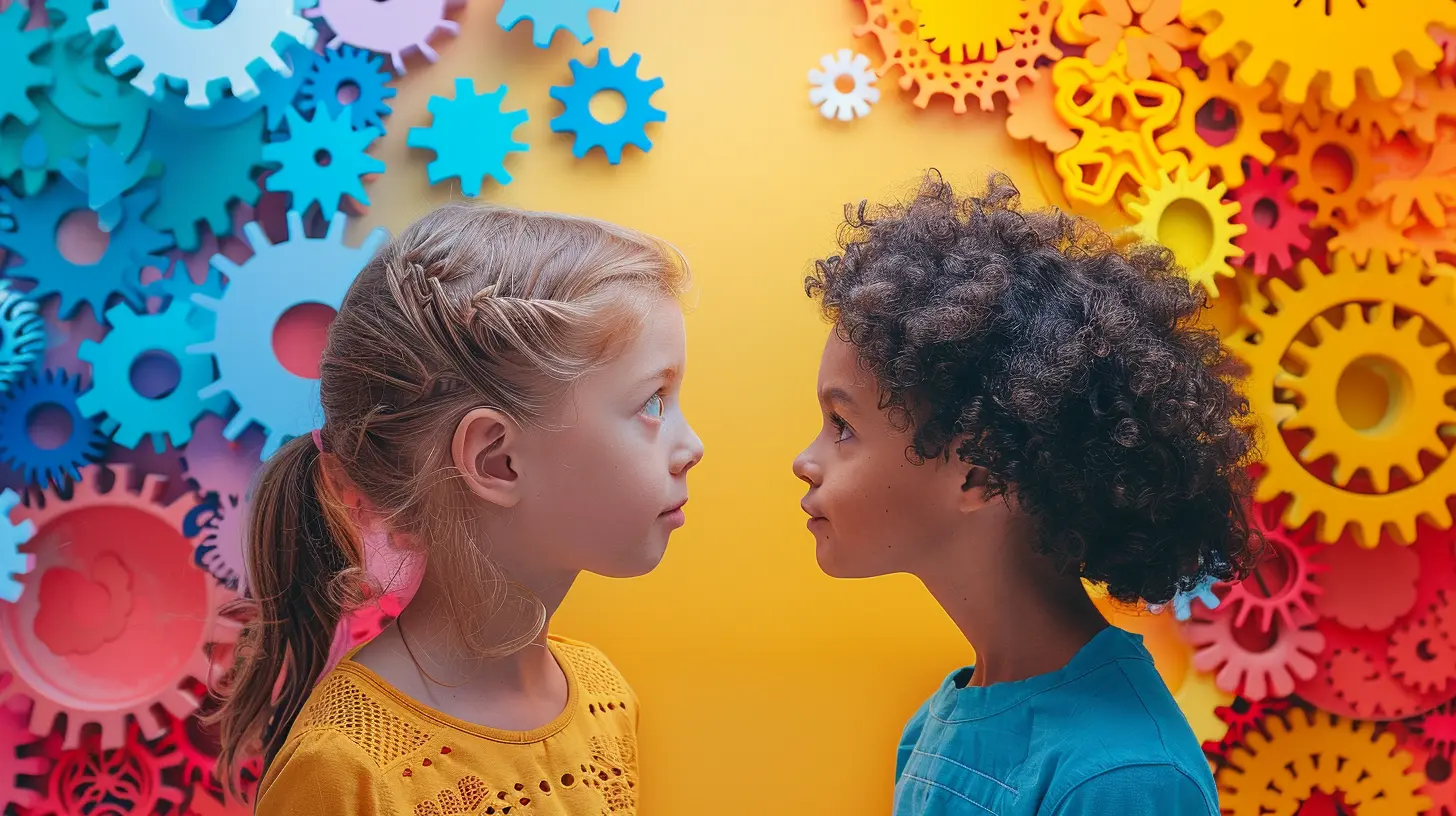How Social Interactions Influence Cognitive Development
18 July 2025
Have you ever wondered why babies babble, toddlers mimic, and teenagers form social cliques? Well, it turns out our brains are basically social sponges—soaking up information, behaviors, and even emotions from those around us. Social interactions don’t just shape our personalities; they actively mold our cognitive abilities.
From childhood to old age, the way we interact with others influences how we think, learn, and process information. Let’s dive into the fascinating world of social interaction and cognitive development—grab a coffee (or tea, if that’s your thing), and let’s get started!

What is Cognitive Development?
Before we jump into how social interactions impact cognitive growth, let's clarify what cognitive development actually is. Essentially, it refers to how we acquire knowledge and develop skills like thinking, reasoning, problem-solving, and memory.Jean Piaget, a famous developmental psychologist, proposed that cognitive development happens in stages—from simple reflexes in infancy to advanced abstract reasoning in adolescence. But here’s the kicker: our cognitive development isn't just a solo adventure—it’s heavily influenced by social interactions!

The Power of Social Interaction in Cognitive Growth
So, what exactly happens when we engage with others? Imagine our brains as a Wi-Fi network—stronger connections mean faster and better processing. When we interact with people, we form neural pathways that enhance our ability to think, reason, and solve problems.Let’s break it down further:
1. Early Social Interactions Shape the Brain
Babies aren’t just cute little humans—they’re cognitive development machines! From the moment they’re born, they crave social interaction. Ever noticed how newborns instinctively respond to human voices and faces? That’s their tiny brain kicking into high gear, absorbing everything like a sponge.- Language Development: Babies learn language by listening to and mimicking those around them. Studies show that talking to infants (yes, even in that silly baby voice) significantly improves their vocabulary and communication skills later in life.
- Emotional Recognition: By observing caregivers, infants learn to recognize emotions, which plays a crucial role in developing empathy and social intelligence.
2. The Role of Play in Cognitive Development
Remember playing pretend as a kid? Whether it was being a pirate, a doctor, or an astronaut, that wasn't just fun—it was brain-boosting exercise!- Problem-Solving Skills: Social play teaches kids how to negotiate, collaborate, and think critically. When kids argue over who gets to be the superhero, they’re actually learning conflict resolution (even if it ends in a tantrum).
- Theory of Mind: Kids gradually develop an understanding that others have thoughts, beliefs, and perspectives different from their own. This is called "Theory of Mind," and it plays a huge role in social intelligence.
3. How Peer Influence Shapes Thinking
Fast forward to adolescence, and you’ll notice that friends suddenly become the center of the universe. Teens might swear they "think for themselves," but peer influence is stronger than they realize.- Cognitive Flexibility: Engaging with diverse social groups exposes individuals to different perspectives, which improves cognitive flexibility—the ability to adapt and think outside the box.
- Moral Reasoning: Ever had a deep philosophical debate with a friend at 2 AM about the meaning of life? Social interactions help shape moral reasoning and ethical decision-making by challenging existing beliefs.
4. Adult Socialization and Continuous Mental Growth
Who says brain development stops in your twenties? Nope, our cognitive abilities continue evolving throughout life, and social interactions play a crucial role.- Work and Collaboration: Engaging with coworkers, brainstorming ideas, and tackling challenges together enhances problem-solving skills and creativity.
- Preventing Cognitive Decline: Studies show that socially active older adults have better memory retention and a lower risk of dementia compared to those who isolate themselves. So, next time your grandma wants to chat, remember—it’s a cognitive workout!

The Downside: What Happens When Social Interaction is Lacking?
Now, let’s flip the script. What happens when social interaction is minimal or nonexistent? Spoiler alert—it’s not great for the brain.- Delayed Language Development: Children who grow up in socially deprived environments often experience delayed speech and cognitive impairments.
- Poor Problem-Solving Skills: Without regular interaction, individuals may struggle with perspective-taking and problem-solving.
- Increased Risk of Mental Decline: Social isolation, especially in older adults, has been linked to memory loss, cognitive decline, and even Alzheimer’s disease.

How to Boost Cognitive Development Through Social Interaction
The good news? There are plenty of ways to keep the brain sharp through meaningful social interactions.- Encourage Conversations: Whether it’s chatting with a friend, debating a topic, or even engaging in small talk with a stranger, conversations stimulate cognitive growth.
- Engage in Group Activities: Join a club, attend social gatherings, or participate in community events—being part of a social group keeps the brain active.
- Never Stop Learning: Take a class, learn a new language, or teach someone else a skill—lifelong learning through interactions keeps cognitive functions strong.
Final Thoughts
Our brains are social creatures. From infancy to old age, the way we interact with others shapes the way we think, learn, and process information. Whether it’s a baby learning to speak, a teen broadening their perspectives, or an adult engaging in intellectual debates—social interactions are at the heart of cognitive development.So, go ahead, strike up a conversation, join a new group, or give Grandma that much-needed call. Your brain will thank you!
all images in this post were generated using AI tools
Category:
Cognitive DevelopmentAuthor:

Eliana Burton
Discussion
rate this article
1 comments
Preston Becker
This article beautifully highlights the profound impact of social interactions on our cognitive growth. Thank you for shedding light on such a vital topic!
August 5, 2025 at 4:11 AM

Eliana Burton
Thank you for your kind words! I'm glad you found the article insightful. Social interactions truly play a crucial role in our cognitive growth.


